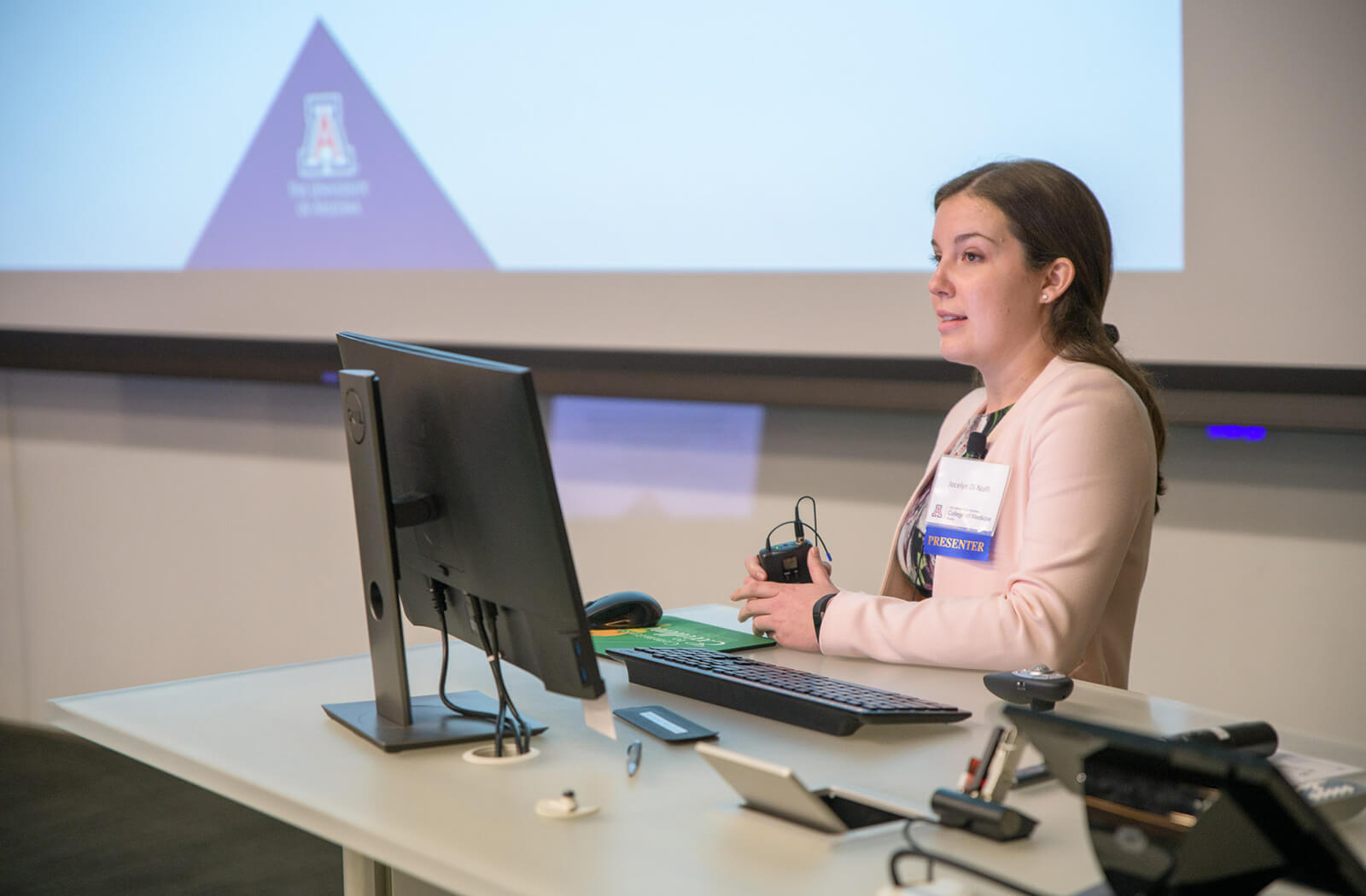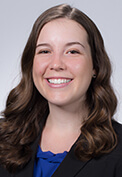
Scholarly Project Profile: Jocelyn Di Nolfi

In the last four years, there has been a decrease in immunization coverage among Maricopa County kindergarten and sixth grade students. Research conducted by a medical student at the University of Arizona College of Medicine – Phoenix discovered that contrary to popular belief, a lack of resources and a lack of access to care are not the main barriers to immunization.
Jocelyn Di Nolfi, a fourth-year student at the medical school, conducted a retrospective review of the four-year trends of personal belief exemption and immunization coverage among Maricopa County kindergarten and sixth grade students. The research was designed to track immunization rates, and assess whether the trends correlate with school type (private vs. charter vs. public) and/or correlate with a school whose students use free and reduced lunch as a surrogate for socioeconomic status.

Di Nolfi said measles coverage via MMR vaccine was used as a proxy for immunization coverage, as measles has a high herd immunity threshold at 95 percent and is one of the most contagious infectious diseases.
Her findings revealed that children who attend a private or charter school are four and three times, respectively, less likely to have complete documentation of MMR immunity. Children attending schools with a lower proportion of students eligible for free and reduced lunch are three times more likely to exempt their children from school-required vaccinations.
Those of higher socioeconomic status had lower immunization rates and higher rates of personal belief exemptions.
“I am hopeful that this study is impactful for Maricopa County and Arizona at large, as immunization coverage is a major public health issue,” Di Nolfi said. “As an Arizona native, I have a personal investment in the health of my community, and declining immunization coverage is a threat to that community. In Arizona, there are bills regarding immunization being heard by the state legislature. It is important to recognize that the declining immunization coverage is a threat to the health of our community, and I hope this analysis serves to educate people on the importance of vaccination.”
Di Nolfi worked on the research with her scholarly project mentor, Rebecca Sunenshine, MD, MPH. She became interested in the topic as a first-year medical and public health student. “I’m interested in preventive medicine and small changes that have a large impact,” Di Nolfi said. “Immunizations are a perfect example of this.”
Di Nolfi hopes to specialize in general surgery, with the intent of ultimately pursuing colorectal surgery. She has a passion for surgery and public health and plans to continue public health advocacy alongside her career as a surgeon.
“This scholarly project has given me foundational knowledge in broader population outcomes research, which is critical to almost every specialty,” Di Nolfi said. “This project has taught me how to analyze large populations and how to advocate on behalf of the health of my community.”
About the College
Founded in 2007, the University of Arizona College of Medicine – Phoenix inspires and trains exemplary physicians, scientists and leaders to advance its core missions in education, research, clinical care and service to communities across Arizona. The college’s strength lies in our collaborations and partnerships with clinical affiliates, community organizations and industry sponsors. With our primary affiliate, Banner Health, we are recognized as the premier academic medical center in Phoenix. As an anchor institution of the Phoenix Bioscience Core, the college is home to signature research programs in neurosciences, cardiopulmonary diseases, immunology, informatics and metabolism. These focus areas uniquely position us to drive biomedical research and bolster economic development in the region.
As an urban institution with strong roots in rural and tribal health, the college has graduated more than 1,000 physicians and matriculates 130 students each year. Greater than 60% of matriculating students are from Arizona and many continue training at our GME sponsored residency programs, ultimately pursuing local academic and community-based opportunities. While our traditional four-year program continues to thrive, we will launch our recently approved accelerated three-year medical student curriculum with exclusive focus on primary care. This program is designed to further enhance workforce retention needs across Arizona.
The college has embarked on our strategic plan for 2025 to 2030. Learn more.